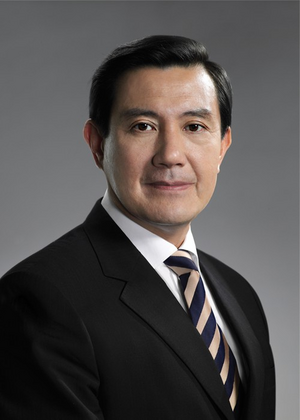Xu Yan
His Excellency Xu Yan | |
|---|---|
徐晏 | |
 Official portrait, 2020 | |
| 22nd Prime Minister of Monsilva | |
| In office 3 September 2016 – 20 June 2023 | |
| President | Chiu Zan |
| Deputy | Cao Jun-lei |
| Preceded by | Lee Su |
| Succeeded by | Lin Yao-tang |
| Leader of the RNP | |
| In office 21 September 2012 – 10 June 2023 | |
| Preceded by | Bai Yun |
| Succeeded by | Bao Hsueh |
| Leader of the Opposition | |
| In office 21 September 2012 – 3 September 2016 | |
| Preceded by | Bai Yun |
| Succeeded by | Lin Qingge |
| Shadow Secretary of State for Foreign Affairs | |
| In office 11 September 2008 – 21 September 2012 | |
| Leader | Bai Yun |
| Preceded by | Luó Qiu |
| Succeeded by | Tao Meixiu |
| Member of the Legislative Assembly for Nantou Constituency | |
| Assumed office 15 September 2004 | |
| Preceded by | He Aiguo |
| Personal details | |
| Born | 13 January 1972 Sanzhong, Weishi, Kingdom of Monsilva |
| Political party | RNP (1995–present) |
| Education | Central Amking University (MSc) |
| This article is part of a series on the |
| Politics of Monsilva |
|---|
 |
Xu Yan (Monsilvan: 徐晏; born 13 January 1972) is a Monsilvan politician who served as the prime minister of Monsilva from 2016 to 2023. Xu was also the leader of the Reformed National Party from 2012 to 2023. Before he was elected as prime minister in the 2016 federal election, he served as the leader of the Opposition in the Parliament of Monsilva. Xu became leader of the RNP after serving in the Shadow Cabinet of former RNP leader Bai Yun as the Shadow Secretary of State for Foreign Affairs. Xu first won the premiership by 53.9% of the popular vote in the federal election of 2016, winning 128 seats (a one seat majority). This win for the RNP marked the return of the party to the premiership after 20 years of FDP leadership by Suen Shi-huang and Lee Su. He was re-elected in 2020 with 49.8% of the popular vote, losing one seat. Xu has been a member of the Legislative Assembly since 2004.
Xu was born in Sanzhong during the martial law period in the Kingdom of Monsilva, but at the age of 7 moved to Wodai where he remained until he went to study political science at Central Amking University. He returned to Sanzhong in 1994 after acquiring his masters degree to serve as a member of faculty in the politics department at Sanzhong College. In 1995, Xu joined the Reformed National Party, and two years later he became Head of the Politics Department at the college. In 2002, Xu left Sanzhong College to pursue his career in politics, signing up for candidacy to be a representative of the Nantou Constituency (Weishi) in the Legislative Assembly after the former representative, He Aiguo, declared he was not running at the 2004 election. In the 2004 election, Xu won the seat by a large margin.
In 2008, after serving as a Member of the Legislative Assembly for the last four years and working his way up through the rankings of the Reformed National Party, Xu was appointed as the Shadow Secretary of State for Foreign Affairs by Bai Yun, the leader of the RNP at the time. Xu remained in this position until his success at the RNP leadership election in 2012 after Bai resigned due to his loss at the 2012 federal election. As Leader of the RNP, he was also made Leader of the Opposition. Xu gained popularity as a persistent force against the incumbent FDP prime minister, Lee Su. In his first election as leader of the RNP in 2016, Xu won 63 seats, making history by ending the FDP's 20 year majority.
Contents
Early life and career
Xu grew up in Sanzhong during the martial law period in the Kingdom of Monsilva and during the early days of the Monsilvan Republic. Both of his parents were supporters of the Monsilvan Revolutionary Army, and both ended up joining the 1978 protests which took place across the country. Xu's mother was one of the hundreds of people killed in the Jingtianmen square massacre which took place in 1978 when Xu was only 6 years old. In 1979, Xu and his family moved from Sanzhong to Wodai where he attended his final years of elementary school and went to high school.
At 18, Xu went to study political sciences at Central Amking University. He was at the university for four years until 1994, when he acquired his masters degree and moved back to his childhood city of Sanzhong to serve as a member of the faculty of the department of politics at Sanzhong College. A year after working at the university, Xu became a member of the Reformed National Party. He became the Head of the Politics Department at the college in 1997 as which he remained until he left the college in 2002 in order to run for a seat in the Legislative Assembly. In 2003, He Aiguo, who had served as a member of the Legislative Assembly for the Nantou Constituency in Weishi, resigned. After this announcement Xu decided to run as a candidate for the Reformed National Party in Nantou for a seat in the Legislative Assembly at the 2004 federal election.
Xu was successful in his running and became a member of the Legislative Assembly on 15 September 2004.
Rise in politics
Member of the Legislative Assembly
Xu Yan entered as a member of the Legislative Assembly in 2004, after winning the seat representing Nantou County, which has been an RNP hold since its creation. Xu initially served in minor government roles, but quickly rose over his first four years in the Legislative Assembly. By 2006, he was won of the senior members in the Shadow Foreign Affairs department, and was one of the top contenders to be the next Shadow Secretary of State for Foreign Affairs in the new party leader, Bai Yun's, first cabinet.
In 2008, the RNP faced a decent loss of seats, including the seat of Xu's largest contender for Foreign Affairs Secretary. With his competition having far fewer endorsements, Xu was appointed as Shadow Secretary of State for Foreign Affairs in Bai Yun's cabinet on 11 September 2008.
Shadow Secretary of State for Foreign Affairs
As Shadow Secretary of State for Foreign Affairs, Xu became a consistent force against the current government Foreign Affairs secretary, Xia Liu. He clashed with her many of the government's diplomatic decisions between 2008 and 2012. In 2012, Xu expressed interest in being the next leader of the RNP, with him publicly expressing that "Bai has no chance". Despite this causing a disagreement with Bai and Xu, after Bai's resignation immediately after the 2012, Xu was the top candidate for party leadership. In late September of that year, Xu was voted in overwhelmingly by his party members to become leader of the Reformed National Party and hence, also the Opposition Leader in the Legislative Assembly.
Leader of the Reformed National Party
As Leader of the Reformed National Party, Xu also became the Opposition Leader, being a direct opposer to Prime Minister Lee Su. Lee had suffered a loss in the previous election, and Xu publicly stated after being elected as leader of the RNP that he has "no doubt that our party will win the next election. My job is to correct the mistakes that this government will inevitably make". During Xu's leadership of the party he gained the nickname amongst many people of "鋒利的針" (Fēnglì de Zhēn), which means "the Sharp Needle". He gained this nickname as he was well known for his frequent reproaching of the Prime Minister and the government, many of which would garner significant reaction from the Assembly.
Many political experts believed Xu was attempting to gain popularity by being charismatic and brutal. When an MBS news interviewer asked Xu if this is what he was doing he replied with, "it's great if people think I'm charismatic. But the point is that I fight against the mistakes our government makes and let Monsilvans be aware that I see the issues the FDP ignore and present answers the party doesn't want to hear; do you want me to just insult them, but give no solutions?".
Appointing the Opposition Cabinet
TBD
2016 federal election
The 2016 federal election was Xu's first election as leader of the Reformed National Party, and he had every intent to win. With Lee Su's popularity having massively declined during his premiership, and Xu's popularity increased, the polls showed a huge lead for the RNP. Xu ended up winning 63 seats for the party, giving it a 1 seat majority in the Legislative Assembly, which on the higher end of predictions, as the FDP's lead had been huge, with them losing 39 seats at the election.